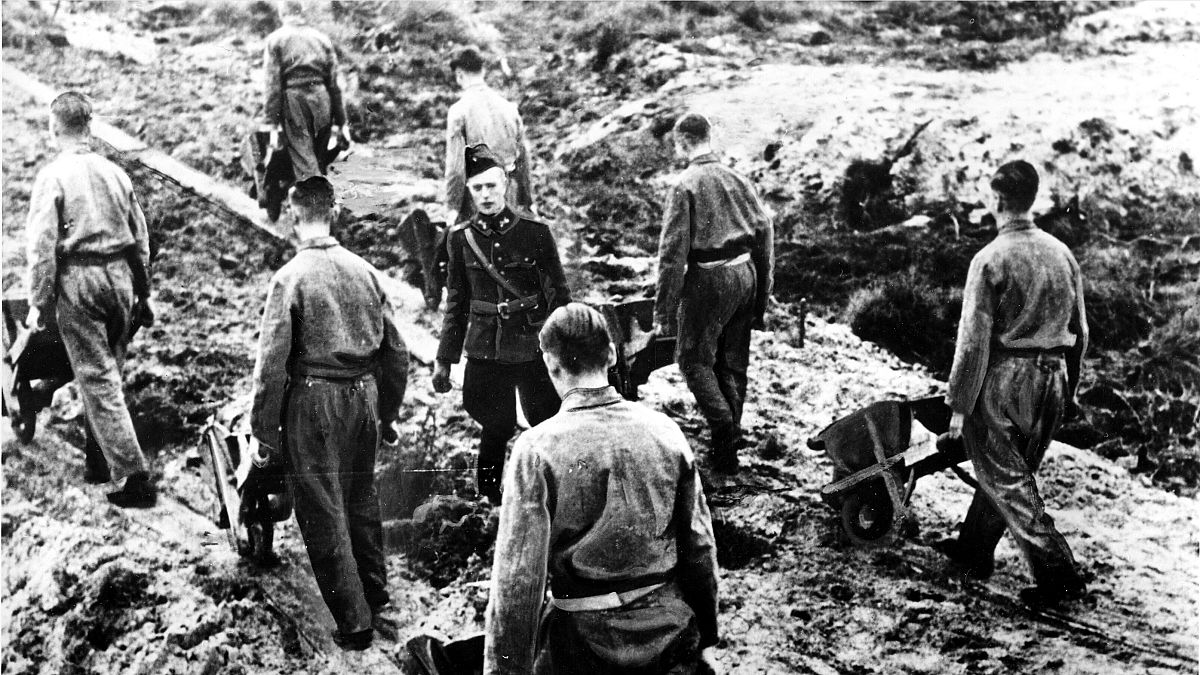The Netherlands has recently published a database containing the names of almost half a million Dutch individuals suspected of collaborating with the Nazis during World War II. The ‘War in Court’ project lists approximately 425,000 citizens who were investigated for working with German occupying forces, with over 150,000 of them facing some form of punishment. The records were previously only accessible to researchers visiting the Dutch National Archives in The Hague, but thanks to the efforts of the Huygens Institute, the archive has now been digitized and made available online. The project was subsidized by the Ministries of Justice, Education, and Health, with the aim of making this significant archive more accessible to the public, especially younger generations.
The archive includes the files of convicted criminals, as well as around 20,000 Dutch citizens who were considered collaborators for signing up to serve in the German armed forces during the occupation. It also contains the names of alleged members of the National Socialist Movement (NSB), the fascist political party founded by Anton Mussert. Additionally, the archive lists individuals who were found innocent after investigation. The online database only reveals the names of suspects and does not specify whether they were found guilty or the type of collaboration they were suspected of. Individuals seeking to examine the archive files must follow current guidelines and submit formal requests for access.
The German occupation of the Netherlands during WWII resulted in the death of over 100,000 Dutch Jews in the Holocaust. The publication of this database is expected to initiate difficult conversations in the Netherlands, particularly concerning the trauma of collaboration. The National Archives director, Tom De Smet, expressed hope that opening the archives would help break the taboo surrounding collaboration. A survey by the Claims Conference in 2023 found that nearly a quarter of Dutch Generation Z considers the Holocaust a myth, while more than half of all Dutch citizens do not perceive their country as a site of the Holocaust. Despite this, the majority of Dutch people agree on the importance of Holocaust remembrance education.
The European Union’s General Data Protection Regulation (GDPR) protects personal data, but does not apply to deceased individuals, which encompasses the majority of names in the archive. However, the Dutch Data Protection Authority highlighted that the files of listed individuals, even those still alive, contain sensitive information such as religious affiliation and political beliefs. This raises privacy concerns regarding the publication of the database and access to personal data. The digitization of the archive by the Huygens Institute aims to provide easier access to this important historical information while also ensuring that the privacy of individuals is respected.
The release of the archive is significant as it sheds light on a dark period in Dutch history and allows for a deeper understanding of the impact of collaboration during WWII. Opening up this information to the public can help facilitate discussions on the consequences of collaboration and the importance of learning from the past. The database serves as a valuable resource for researchers, historians, and the general public interested in exploring the complexities of wartime collaboration and the repercussions faced by those involved. Making this archive accessible online ensures that future generations can continue to learn about and reflect on this crucial aspect of Dutch history.










